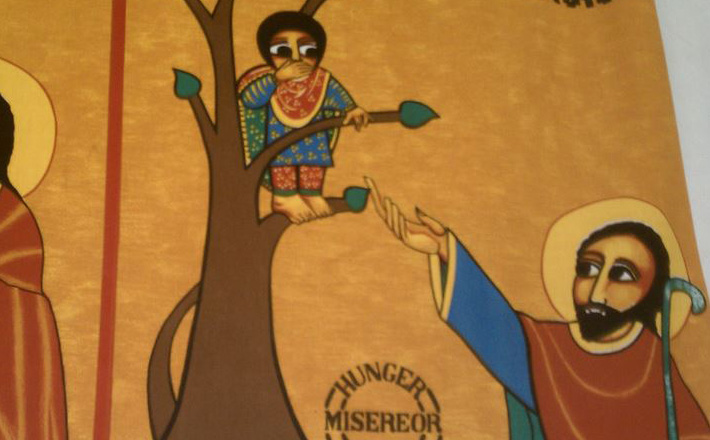Commentary on 2 Thessalonians 1:1-4, 11-12
In 2 Thessalonians, after the greeting, the author writes, “we must always give thanks.”
Two textual notes here: First, thanks is not something to be done once, but something to be done continually. Second, this opening differs from 1 Thessalonians in that there is an “ought” added to 2 Thessalonians. If Paul is the writer of 2 Thessalonians, I wondered if perhaps this heightened emphasis on gratitude compared to 1 Thessalonians is intentional, and led me to focus my reflections for this text on the notion of gratitude.
Gratitude and grace both derive from the Latin gratus, meaning pleasing or thankful, yet have evolved into separate concepts. Gratitude is about giving thanks, and grace is a much wider concept that as a noun usually involves freedom and, as a verb encompasses fullness and completeness. The point is that gratitude is related to grace, yet, I believe we are more interested in grace than gratitude. One might say that our ability to be grateful is directly tied to how “graced” we are. In other words, when we receive grace, we feel grateful. Yet, I wonder how often we feel we have received grace. My assumption is that many of us believe we are fully free and complete just as we are, with no help from anyone. Receiving grace would imply that one needed grace; that one was somehow insufficient.
The implication for our sermon preparation is that preaching grace to people who have no need of it might not do much good. Yet, I know that people are hurting, and are in need of a good word. The trick is to convey the need for grace without alienating people. Simply naming things that are taken for granted might help people realize that many of us live in abundance, but do not realize it. Afflicting the comfortable by showing them their comfort may create room for grace to abound, and gratitude to flower.
As I was researching this text, I did a quick Google search for “gratitude.” The first result was a dictionary definition from Google, that, when expanded, shows the usage of gratitude over history through Google books. I was amazed at what I found. The use of gratitude was about 6 times higher in 1800 than in 1990. While there has been an uptick in usage since 2000, it is still one quarter of the usage from 1800. Perhaps the decline in gratitude may be directly correlated to the decline in the need for grace. If this Google books anecdote is to be believed, we clearly have trouble expressing gratitude. Yet, gratitude is part of many traditions’ worship services, usually in the form of offering and Holy Communion. It may be that we can do a better job of educating people about gratitude.
Calling people to express their gratitude may take a variety of forms, from simple encouragement to creating space in worship for people to tell stories of gratitude, to a fuller explanation of the term Eucharist. Gratitude can change our outlook on life and could even help to create more room for people to hear grace in their lives.
2 Thessalonians 1 stresses how we ought to be continually thankful for the faithfulness of the people there. As I read this more closely, I wondered if we, as preachers, might need to be more thankful of those who come to our worship services to hear the good news. I often reflect that leading an all-volunteer organization challenges like nothing else, but it also rewards like nothing else as well. Perhaps we have missed some opportunities to be thankful that all of these people continue to show up week after week, and continue to be steadfast in their faith.
The other theme that may be of interest is that of endurance. I would hazard a guess that few of our parishioners face the tests of endurance regarding their faith that Paul is talking about. Yet, I believe that the real tests for our church-going folk come through all of the demands that are placed upon them by their families, employment, or the wider culture. There is so much going on that families can’t do it all and have to make difficult decisions. I have experienced more than one family choosing not to participate in confirmation events due to conflicting school events. I know many churches that do “rolling 1st Communion, Confirmation, etc.” as a way of not forcing families to have to choose between church and something else. So, there may indeed be a need for endurance for those in the faith as they try to find room for God in their lives.
Endurance in life also exists for the multitude that suffer because of poverty, racism, sexism, and other forms of oppression. Part of our calling as preachers may be to boldly lift up our neighbors who suffer so that God can stir those of us who do not suffer the same oppression to action. By lifting up all that we have to be grateful for, we may help those of us living lives of privilege to realize how much we have, and to hear anew the calls for justice and peace in our world. As always, Paul prays that “God will make you worthy of [God’s] call, and will fulfill by [God’s] power every good resolve and work of faith.” We do not do this work alone. God’s call to us comes with the Advocate, the Holy Spirit. We are truly a blessed people, full of grace. Thanks be to God!


October 30, 2016